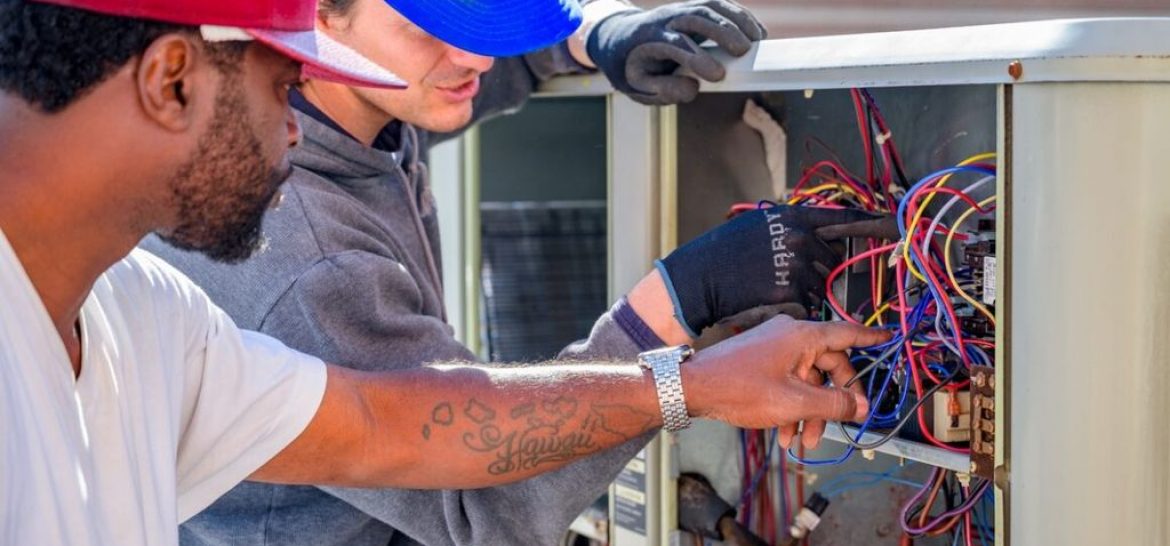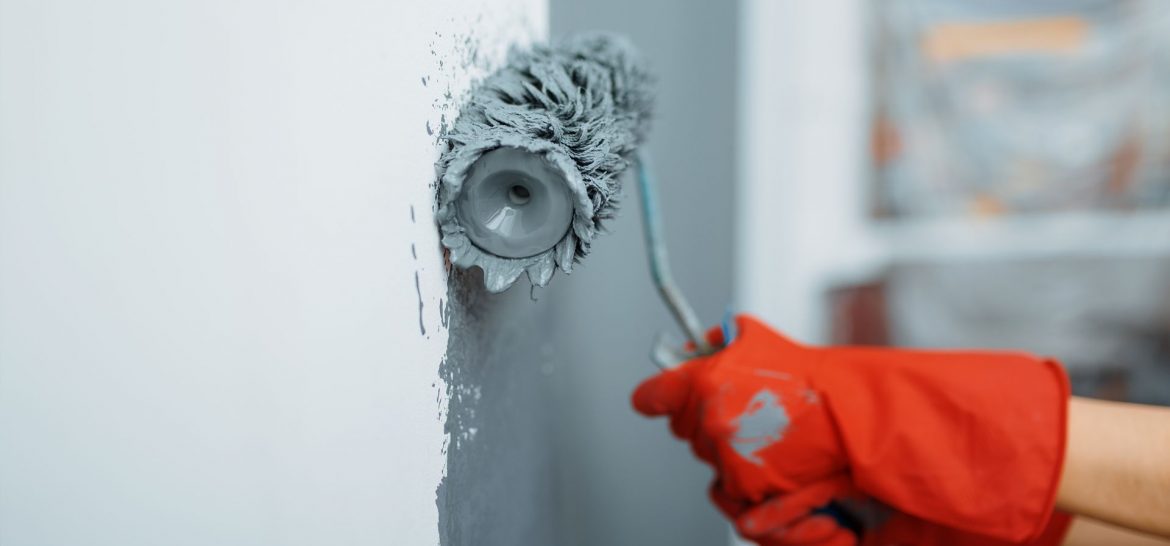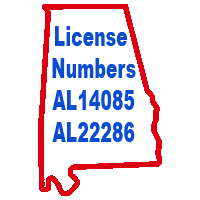A malfunctioning heating system can be a major inconvenience, especially during the cold winter months. Not only does it leave you feeling uncomfortable, but it can also lead to increased energy bills. It’s important to be aware of the signs that indicate your heating system needs repair. In this article, we will discuss five common signs that your heating system may be in need of attention.
Key Takeaways
- Lack of heat
- Strange noises
- Frequent cycling
- Increased energy bills due to inefficient heating
- Air leaks and thermostat malfunction
Common Heating System Issues
Lack of Heat
One of the most obvious signs that your heating system needs repair is a lack of heat. If you notice that your home is not getting warm even though the thermostat is set to a comfortable temperature, it could indicate a problem with your heating system. There are several potential causes for this issue, including a malfunctioning thermostat, a clogged air filter, or a faulty heating element.
To determine the exact cause of the lack of heat, it is recommended to contact a professional HVAC technician. They will be able to diagnose the problem and provide the necessary repairs. Ignoring this issue can lead to further damage to your heating system and potentially higher repair costs in the future.
If you are experiencing a lack of heat in your home, it is important to address the issue as soon as possible to ensure your comfort and safety during the colder months.
Strange Noises
When your heating system starts making strange noises, it could be a sign of a potential problem. Rattling, banging, or clanking sounds may indicate loose or broken components within the system. Whistling or hissing noises could be a result of air leaks. Ignoring these noises can lead to further damage and costly repairs.
To diagnose the issue, it is recommended to contact a professional heating technician. They can inspect the system and identify the source of the noise. In some cases, a simple adjustment or repair may be all that is needed. However, if the problem is more severe, they can advise on the best course of action.
If you notice any strange noises coming from your heating system, it is important to address the issue promptly. Delaying repairs can result in decreased efficiency and higher energy bills. It is always better to be proactive and resolve any potential problems before they escalate.
Frequent Cycling
Frequent cycling is when your heating system turns on and off more frequently than normal. This can be a sign of a problem with your heating system that requires repair. Excessive cycling can lead to increased wear and tear on the system, reducing its lifespan and potentially causing more serious issues down the line.
There are several possible causes for frequent cycling, including thermostat issues, dirty air filters, or improperly sized equipment. It’s important to address these issues promptly to prevent further damage and ensure optimal performance.
To diagnose the cause of frequent cycling, it’s recommended to check the thermostat settings and make sure they are properly calibrated. Additionally, clean or replace the air filters regularly to maintain proper airflow. If the problem persists, it’s best to contact a professional heating technician who can assess the system and provide the necessary repairs.
In some cases, frequent cycling may be a normal behavior of certain heating systems, especially if they are older or have outdated controls. However, it’s always better to err on the side of caution and have a professional evaluate the situation to ensure the system is functioning correctly.
Increased Energy Bills
Inefficient Heating
Inefficient heating can be a sign that your heating system needs repair. If your home is not getting warm enough, even when the thermostat is set to a higher temperature, it could indicate a problem with your heating system. This could be due to a faulty furnace or a clogged air filter. It’s important to address this issue promptly to ensure your home stays comfortable during the colder months.
Air Leaks
Air leaks in your heating system can lead to a variety of problems. Leaky ducts can cause a loss of heated air, resulting in reduced efficiency and increased energy bills. Sealing any leaks in the ductwork can help improve the overall performance of your heating system.
In addition to duct leaks, leaky windows and doors can also contribute to air leaks. Properly sealing these areas can prevent drafts and keep the warm air inside your home.
To identify air leaks, you can perform a simple visual inspection. Look for gaps or cracks in the ductwork, windows, and doors. Feel for any drafts around these areas. If you notice any leaks, it’s important to address them promptly to avoid further energy loss.
Tip: Consider hiring a professional to conduct a thorough inspection of your heating system and identify any hidden air leaks that may be affecting its performance.
Thermostat Malfunction
A malfunctioning thermostat can cause a variety of issues with your heating system. It is responsible for regulating the temperature in your home, so when it malfunctions, it can lead to inconsistent heating or cooling. Inefficient heating is a common problem associated with a faulty thermostat. If your thermostat is not accurately reading the temperature or is not communicating properly with your heating system, it may result in your system running longer than necessary, leading to higher energy bills.
To determine if your thermostat is malfunctioning, there are a few signs to look out for:
- Inconsistent temperature: If you notice that some rooms in your home are significantly warmer or cooler than others, it could be a sign of a thermostat malfunction.
- Unresponsive controls: If your thermostat is not responding when you adjust the temperature settings, it may indicate a problem.
- Incorrect temperature readings: If your thermostat is displaying inaccurate temperature readings, it could be a sign of a malfunction.
If you suspect that your thermostat is malfunctioning, it is important to have it inspected and repaired by a professional HVAC technician. They can diagnose the issue and ensure that your heating system is functioning properly. Remember, a malfunctioning thermostat can not only affect your comfort but also lead to increased energy bills.
Conclusion
In conclusion, it is important to be aware of the signs that indicate your heating system needs repair. Common heating system issues such as lack of heat, strange noises, and frequent cycling can be early indicators of a problem. Additionally, increased energy bills may suggest inefficient heating, air leaks, or thermostat malfunction. By addressing these issues promptly, you can ensure the comfort and efficiency of your heating system. If you notice any of these signs, it is recommended to contact a professional to assess and repair your heating system.
Frequently Asked Questions
1. How often should I have my heating system inspected?
It is recommended to have your heating system inspected at least once a year to ensure it is functioning properly and to identify any potential issues before they become major problems.
2. What are the common signs that my heating system needs repair?
Common signs that your heating system needs repair include lack of heat, strange noises, and frequent cycling.
3. How can I improve the energy efficiency of my heating system?
To improve the energy efficiency of your heating system, you can ensure proper insulation, seal any air leaks, and regularly maintain and clean your system.
4. What should I do if my heating system is not producing enough heat?
If your heating system is not producing enough heat, you can check the thermostat settings, replace or clean the air filters, and ensure that the vents are not blocked.
5. Why is my heating system making strange noises?
Strange noises from your heating system could indicate a variety of issues, such as loose or damaged components, air in the system, or a malfunctioning blower motor.
6. How can I troubleshoot frequent cycling of my heating system?
To troubleshoot frequent cycling of your heating system, you can check the air filters, clean the condenser coils, ensure proper airflow, and adjust the thermostat settings.







0 Comments